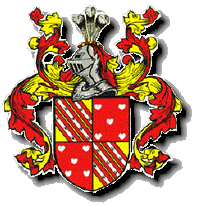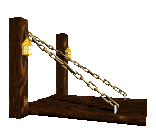
Version Française |

|

Deutsche version |
It was not until the early Middle Ages that surnames were first used to distinguish between numbers of people bearing the same personal name. With the growth of documentation in the later Middle Ages, the surname became essential, and a person whose distinguishing name described his trade, his place of residence, his father's name, or some personal characteristic, passed that name on to his children, and the surname became hereditary.
In the case of the Spanish surname Guevara, this name is of local origin, being derived from the place of residence of the initial bearer. In this instance, the surname is derived from the place name Guevara which is located in the province of Alava. According to etymologists, the place name Guevara is derived from the Basque word " ebar " which means " fern or bracken " .
The earliest record of the surname is that of a donation made to the Order of Calarava by Vela Ladron de Guevara in 1288. He was a descendant of Count Ladron Velez de Guevara, Senor of the House of Guevara, who described himself " En el nombre de Cristo. Amen. Yo, Ladron, Conde por la gracia de Dios y Principe de los navarros " - " In the name of Christ. Amen. I, Ladron, Count by the grace of God and Prince of the people of Navarre " . A branch of the Guevara family settled in Onate and were granted the title of Condes de Oñate.
